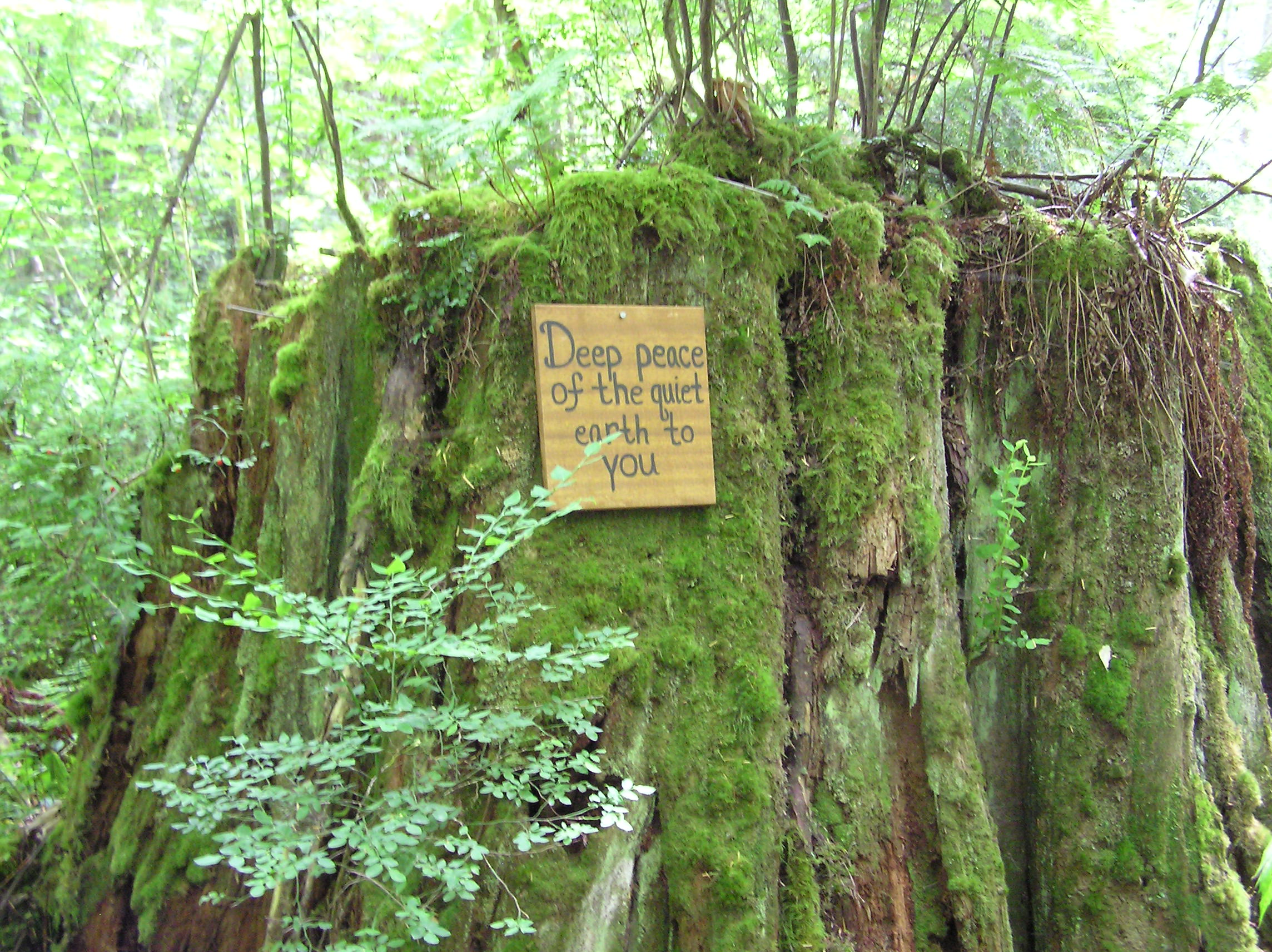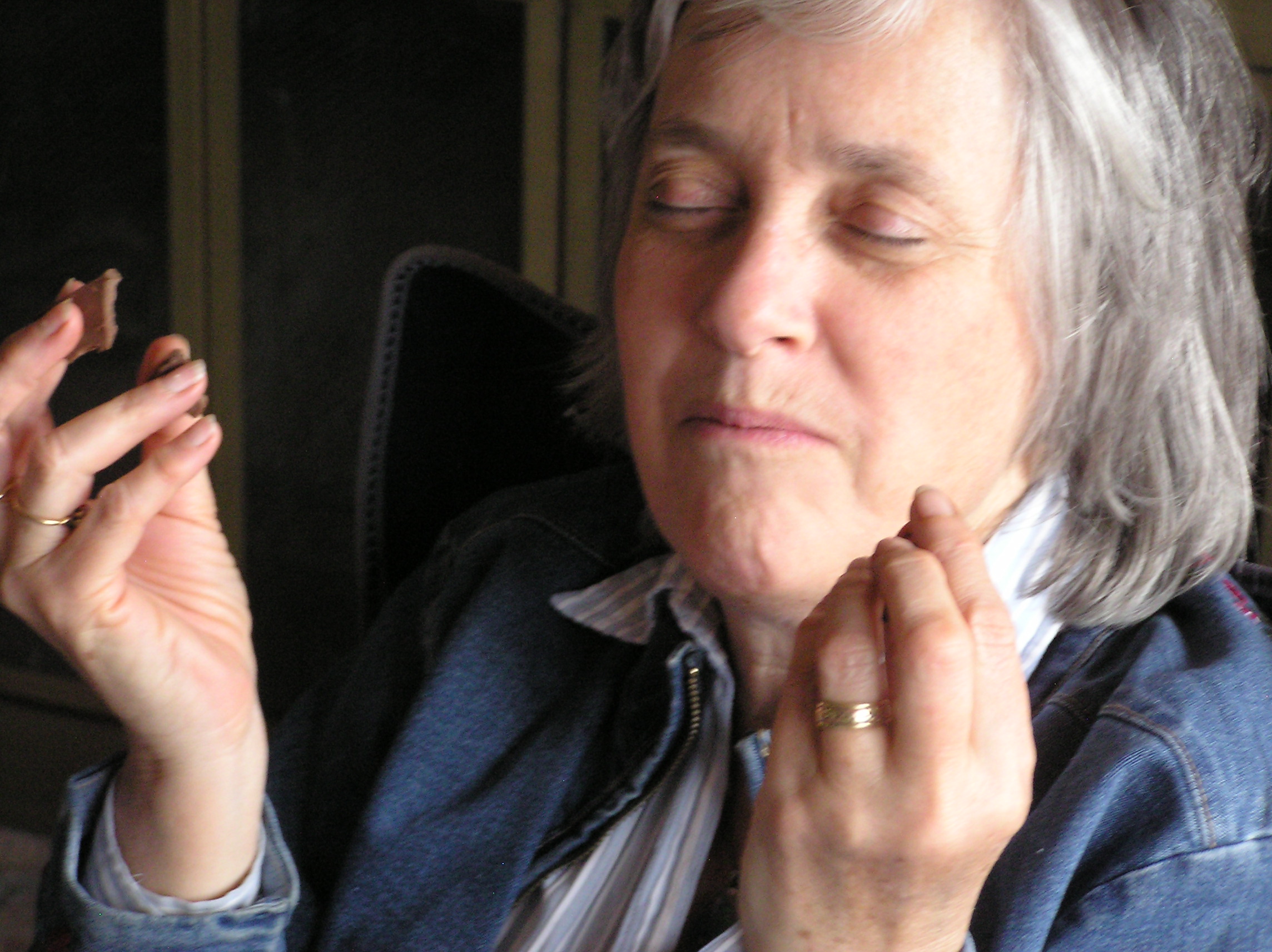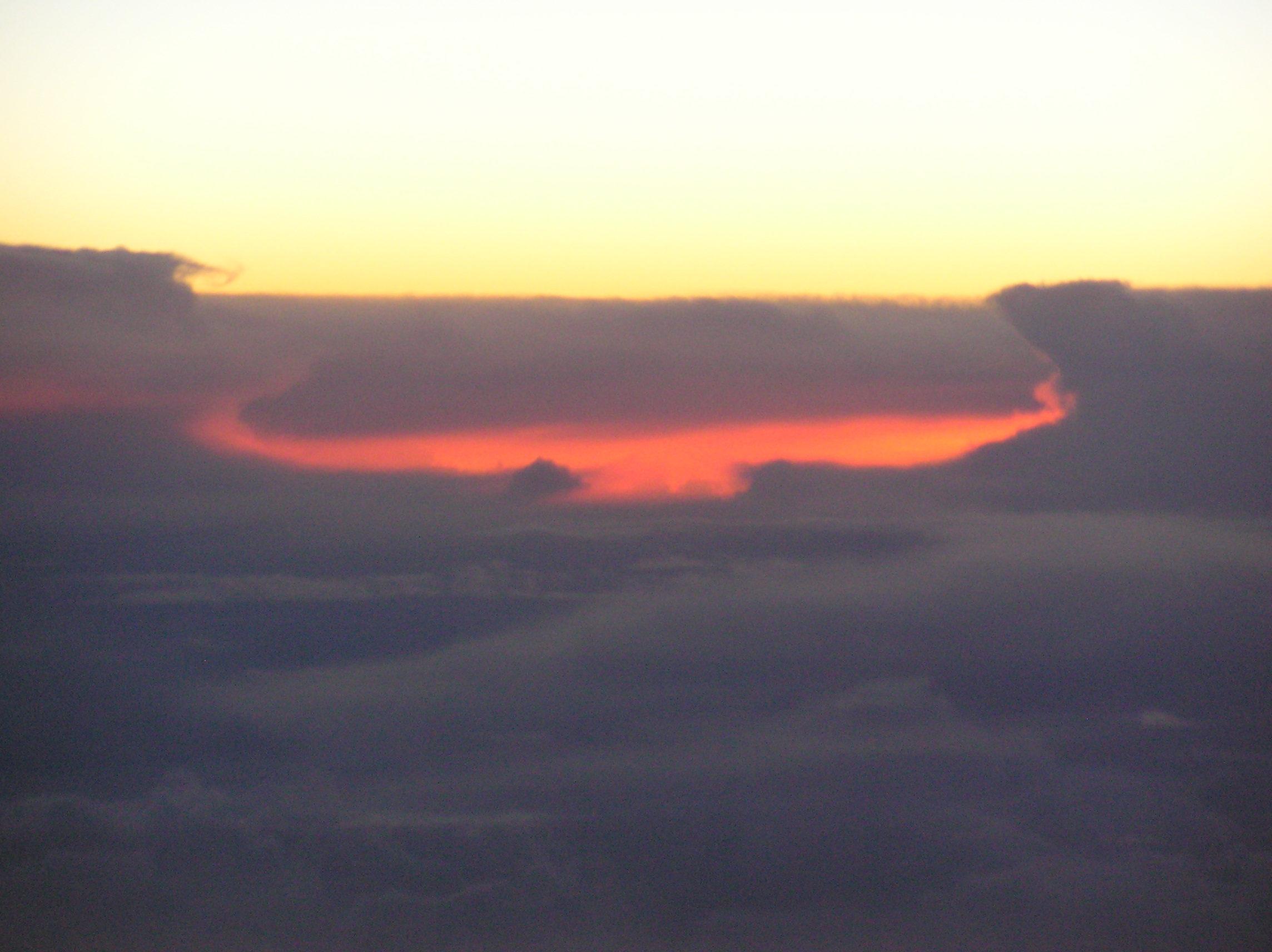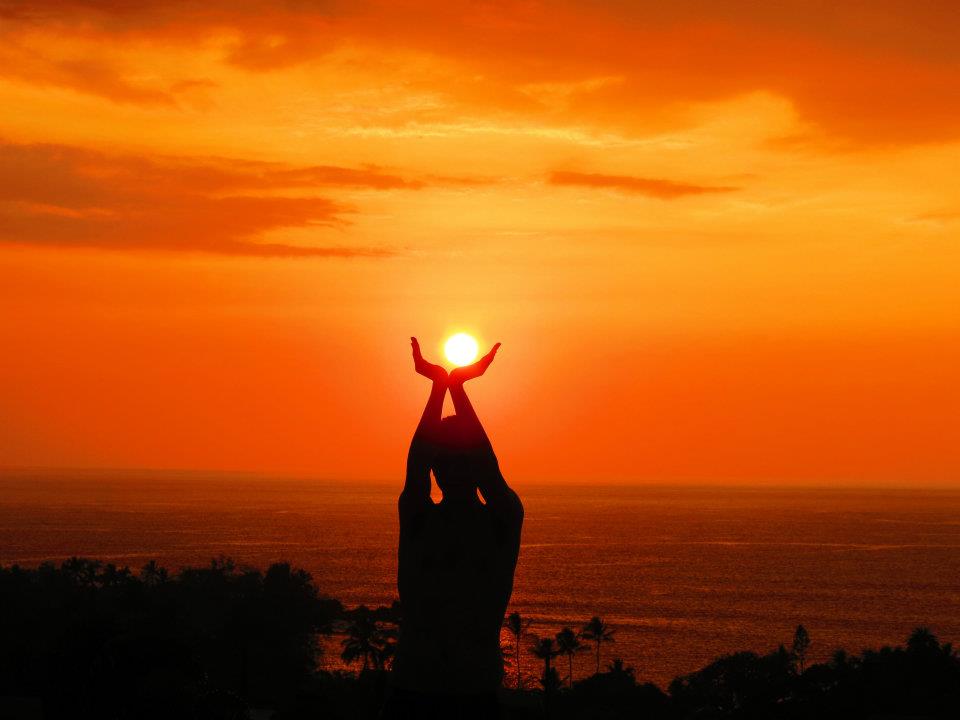Our annual Celtic retreat is coming. We hold it in August on a beautiful parcel of undeveloped land on Camano Island north of Seattle. There are no buildings. Our sanctuary is a cathedral of trees – cedar and maple and alder that rise above is in a breathtaking green canopy. I particularly love to sit in the early mornings before anyone else is awake, drinking in the beauty of God’s awe inspiring creation. This is a sacred space for me, what is often called a thin space where the veil between heaven and earth seems to be translucent and the glory of God shines through in a special way.
Special places where we feel almost physically embraced by the love of God are important places of prayer for all of us. Be they a comfortable old armchair we return to day by day, a special place to walk or a garden seat that invites us to stop and smell the roses, they should be nurtured and preserved. However we don’t need these special places and we certainly don’t need churches to create a sanctuary in which we can meet God. God very reluctantly gave the Israelites permission to build a place of worship. I think he knew that temples and churches would limit our understanding of sacred space and places in which we meet and commune with God.
If we expect to meet with the One we love wherever we walk, listen look and learn, all of God’s creation becomes a sacred space where we can interact with God, experience the love of God and see the story of God unfold. As C.S. Lewis expresses it: “Any patch of sunlight in a wood will show you something about the sun which you could never get from reading books on astronomy. These pure and spontaneous pleasures are ‘patches of Godlight’ in the woods of our experience.”
God’s first act in the newly created world we call Earth was to create a garden in which to walk, talk and share a loving relationship with humankind. This sacred space was alive with the presence of God and I am sure that as Adam and Eve looked around them everything they saw, touched, smelled and tasted reminded them of their creator. The tragedy of our present condition is that we are not only separated from the presence of God, we are blind to the sanctuary that is God’s entire creation and deaf to all that speaks of God’s love throughout our created world.
God is constantly revealed through the creation as Psalm 19: 1-4 relates so clearly:
The heavens proclaim the glory of God.
The skies display his craftsmanship.
Day after day they continue to speak;
night after night they make him known.
They speak without a sound or word;
their voice is never heard.
Yet their message has gone throughout the earth,
and their words to all the world.
Sociologist Lisa Graham McMinn explains: The wonders of the earth call out, inviting those who are mindful – who hear, see, taste and smell – to praise and honor God whose creation brings us pleasure and sustenance.
Nature has always been a wonderful stimulant to my prayer life but as I learned to see the entire creation as a sacred space, its revelations became even more profound and my ability to see, hear and listen to God was expanded far beyond the church building. The whole world and my interactions with it became an invitation to look for God at work, listen to what God was saying and question what God was doing. These interactions help me to understand the story of God and how it is enacted in our world and in my life. A walk in the mountains, the planting of seeds, inhaling the heady perfume of my favorite rose, caressing the soft fur of our golden retriever often draw me into a place of deep intimacy with the God whose loving presence is expressed in all I see, hear, feel and smell.

aughter the best medicine via emotion images
I mentioned yesterday that my post was a contribution to the May Synchroblog. Here are the other posts – great stuff and well worth a read.
- Jeremy Myers at Till He Comes – Lighten Up!
- Maria Kettleson Anderson at My Real Journey – The Art of Passionately Lightening Up
- Melody Harrison at Logic and Imagination – {I Don’t Do Joy}
- Wendy McCaig – Lighten Up: Learning to Let Go From A Man Who Lost It All
- Carol Kuniholm at Words Half Heart – Resurrection Laughter
- R. Lee Bayes at Southern Humanist – Loving Light
- Alan Knox – Be Sarcastic With One Another
- Patrick Oden at Dueling Ravens – Truth, Beauty, and Yodeling Pickles
- Tammy Carter at Blessing the Beloved – A Tricky Little Journey
- Christine Sine at Godspace – Lighten Up: It Really is the Best Medicine
- Glenn Hager – Margaritas, Metallica, and A Serious Case of the Giggles.
- Liz Dyer at Grace Rules – A Spoonful of Sugar
- K.W. Leslie at More Christ – When Jesus Made A Funny
- Maurice Broaddus – Why So Serious?
- Ellen Haroutunian – A Laughing God
A couple of weeks ago I was chatting to Ricci Kilmer, about how much we miss her daughter Catie at our Mustard Seed staff and retreat times. I remember her telling us once that we needed more fun in our meetings. Not surprisingly, she was often the one who came up with ideas of fun things for us to do together.
At one of our MSA retreats she made us all into chocolate tasters. We were each given a small piece of chocolate to savour. We each closed our eyes, and sat with the chocolate on the palm of our hand,breathing in the richness of its aroma. Then we got to taste it, noticing its texture, the way it tasted on our tongues and stirred our senses. With much laughter and hilarity we shared our thoughts. Then we opened our eyes and with relish licked the now molten chocolate from fingers.
I couldn’t help but think of this as I read the invitation to participate in this month’s synchroblog
One thing feels clear about the faith blogging world–we can be kind of serious most of the time. Serious about beliefs, theology, and hard conversations about the intersection of life and faith. It is serious stuff we’re talking about, but sometimes what gets missed in all of the intensity is joy & laughter & lightness. It’s probably a good idea to learn how to not take ourselves quite so seriously. The May 2012 Synchroblog is centered on the idea of what it might mean to lighten up a little–personally, spiritually, professionally, or in any area of our lives. You can write about why that’s easy or hard for you, share something funny or humorous, or any other angle that feels easy and right (remember, part of this is about lightening up!)
Its true, I often think that most of us take our faith too seriously. How often after all do we imagine Jesus laughing or God enjoying a good joke. Yet I think that God is full of laughter and humour. It bubbles up in the wonder of creation – who else could create a dog like the Komondor.

Or animals that act like these
Or give us the imagination to do things like this first wedding dance video
Imagination, creativity, the very act of laughter itself show that God is a fun loving God. And it does even seem to improve our health as this articlesuggest. Maybe it shouldn’t surprise us therefore to discover that lot of God’s creativity can make us smile and feel happy. Even compost gives you a high. The earthy smell of good rich composted soil, or even of compost straight from your pile produces bacteria that increase the serotonin in your brain and make you feel happy. As Pagan Kennedy says in her article How To Get High on Soil,
Scientists call it “geosmin,” this dirt smell that lends the earthy taste to beets and carrots. It’s the flavor of life. Read the entire article
No wonder God’s first action after creation was to plant a garden and no wonder he calls us to steward creation. He knows that we are happiest when we have our hands (or our noses) in the dirt. Now that seems like something to really laugh about.
Learning to lighten up for me would mean taking time to enjoy the humour of life more. It would mean taking more time for fun and laughter. Working on this post today has definitely made me realize that this is something I need to do.
Here is the complete list of posts
- Jeremy Myers at Till He Comes – Lighten Up!
- Maria Kettleson Anderson at My Real Journey – The Art of Passionately Lightening Up
- Melody Harrison at Logic and Imagination – {I Don’t Do Joy}
- Wendy McCaig – Lighten Up: Learning to Let Go From A Man Who Lost It All
- Carol Kuniholm at Words Half Heart – Resurrection Laughter
- R. Lee Bayes at Southern Humanist – Loving Light
- Alan Knox – Be Sarcastic With One Another
- Patrick Oden at Dueling Ravens – Truth, Beauty, and Yodeling Pickles
- Tammy Carter at Blessing the Beloved – A Tricky Little Journey
- Christine Sine at Godspace – Lighten Up: It Really is the Best Medicine
- Glenn Hager – Margaritas, Metallica, and A Serious Case of the Giggles.
- Liz Dyer at Grace Rules – A Spoonful of Sugar
- K.W. Leslie at More Christ – When Jesus Made A Funny
- Maurice Broaddus – Why So Serious?
- Ellen Haroutunian – A Laughing God
Yesterday was a disastrous travel day for me. I left home at 4 am for a 6 am flight expecting that I would arrive in New Haven Connecticut at a reasonable hour, have dinner with friends and a good night’s sleep before starting my week long teaching session at the Overseas Ministries Study Center. Severe thunderstorms in Chicago played havoc with my day and twenty four hours later I finally dragged my weary body into bed hoping to get a nap before breakfast.
The day was not a total disaster however. I spent some of my waiting hours at Chicago O’Hare remembering other airports I have lived in and the stories associated with my adventures. I remember being stranded at Washington Dulles and meeting a delightful Haitian lady who spoke hardly a word of English. Together we figured out how to change our flights, find a hotel and get to our destination. She called me her guardian angel.
I also remember Tom and I being stranded in Pittsburg by snow storms. We spent two peaceful and very relaxing days enjoying the beauty of the snowy landscape, in one of the few hotels that had power. We returned home refreshed and relaxed.
I remember too sitting with a friend at the airport in Accra Ghana for 24 hours. Not fun but we found out later that our plane was grounded in London for much overdue maintenance checks. Who knows what disaster we were protected from.
Of course there were the times of stressfully trying to present when most of my luggage and notes were lost who knows where for a couple of days. There were sleepless nights that I could have done without. What I noticed particularly however were the anxieties I could have let go of. After all being delayed for a day is not cataclysmic. The earth did not shake and even my life was not really impacted. In fact most of these memories are good not bad. If anything they all slowed me down to take time to notice things I would not otherwise notice.
One of the chapters I am working on in my book Return to Our Senses, is about the need to remember. Memories help root our prayers and our lives in the faithfulness of God and can provide important signposts that lead us onward towards the heart of God. Taking time to remember is important and though I would rather not have spent fourteen hours at the airport yesterday I am grateful for the memories it stirred and the reminders of God’s faithfulness in the little as well as the big circumstances of our lives.
There was much to give thanks for in my journey. I am grateful for the faithfulness of God who kept me safe throughout the journey. I am grateful for the faithfulness of friends – Robert Watton cheerfully picked me up at the airport at 4 am in spite of the fact that it meant he would go to work from a sleepless night And as we finally flew towards Harford CT the view of the super moon outside the window was breathtaking in its beauty. That is a memory that will stay with me into the future too.
Let us always remember the wonder of God’ love
Let us always remember the beauty of God’s world
Let us always remember the joy of God’s faithfulness
Let us remember and give thanks
This weekly roundup of facebook prayers has been fun for me to review – not hard to tell that I am writing a book on prayer as an exercise in love
——————————————————
My good friend Tom Balke just sent me this link to “pray as you go”. It is a beautiful meditative prayer (takes about 10 minutes) offered by Jesuit Media Initiatives. It is well worth a listen but make sure you take the time to go through the whole meditation. www.prayasyougo.org
———————————-
Let each breath that you take breathe in God
Let each step that you make live for God
Let each word that you say glorify the One who fills our world with life and love
——————————–
Let the love of God soak into your heart,
Let the peace of God soak into your soul,
Let the life of God soak into your spirit,
May they transform you and make you whole.
———————————
Jesus teach us to pray as you did,
Not in thought and speech but in truth and action,
Jesus teach us to love as you did,
In compassion and mercy, with patience and kindness,
Jesus teach to live as you did,
Considering the needs of others as more important than your own.
——————————————
Let us love as God loves with forgiveness and restoration
Let us love as Christ loves with compassion and mercy
Let us love as the Spirit loves with truth and action
Let us join the Triune God who is love
—————————————–
Lord Jesus Christ may we call each other into life and hope,
May we learn always of your love unveiled through the life of others,
And respond to your wisdom expressed through the most unlikely people.
—————————————–
Jesus may we sit in your presence today
And absorb the inner world of God.
—————————————-

Toward an architecture of place – via project for public spaces
It is easy for me to get distracted and I must confess that since the Inhabit conference I have found it even easier. My friends at the Parish Collective keep posting such interesting articles, examples of what creative ordinary people are doing in their communities. It is both inspiring and energizing so I thought I would share some more of what I have learned this week.
Continuing the Conversation: Toward an Architecture of Place and Toward an Architecture of Place are two articles well worth reading.
We believe that the iconic design movement, which defines our architectural era, must integrate a sense of place into its work. When the bold idea of place takes hold in modern design, cities will become more livable, sustainable and authentic.
Now it is time to watch Paul Spark’s video on Land and the Baptized. produced by Work of the People. Paul is always an inspiration to me and his insights are well worth reflecting on.
OK now download this great resource from the New American Dream.
And finally this is a very inspirational video to watch too. I love the comments she starts with: There is no failure – creativity comes out of chaos. Gratitude trumps fear.
And Paul Spark’s comments:
The only stories of heroes most people have in common are the ones they watch on TV. But in our neighborhood a lot of us have stuck around long enough to see the characters who deserve to be called “hero” because of the way they live their lives, and what they’ve overcome. In our town stories are told about their lives, about their character, about their courage, and about how their acts of imagination bring power to the people. My friend Patricia Lecy-Davis is one of those kind of heroes.
In the last few days I have posted several articles about the love of God and prayer. I also posted one about the riots here in Seattle on May Day. Guess which one got the most traffic?
It saddens me to see how much more easily we are drawn towards violence than towards love – not the mushy love of lust that is so often portrayed on the TV screen – but the enduring self sacrificing love that is at the core of who God is and who God wants us to be.
Violence saturates our society and we seem to accept it especially here in America. When I set out to get statistics on violence and media consumption this morning, I could find the results of little research done in the last 7 or 8 years. And the statistics from back then are rather sobering. Evidently the average child, from 2004 figures, will see at least 8,000 murders on TV before they finish elementary school and 200,000 violent acts by age 18. And if you want to follow the statistics SCMS Canada is well worth a visit.
Yet many people do not believe that watching violence creates violent behaviour and unfortunately much of the research produces inconclusive results as this article shows. In fact the most quoted research, though it concedes that watching violence increases aggression, states the startling fact that:
We find that violent crime decreases on days with higher theater audiences for violent movies…. Overall, we find no evidence of a temporary surge in violent crime due to exposure to movie violence. Rather, our estimates suggest that in the short-run violent movies deter over 200 assaults daily.
So should we encourage the watching of violence hoping that it will actually decrease the incidence of violent crimes? Or is there another solution like teaching both children to love and care for each other rather than competing with each other.
Fortunately there are many organizations that are more concerned with peaceful rather than violent solutions to violence. Those involved in conflict resolution have grown remarkably in the last few years. Here are a few organizations worth checking out.
Eastern Mennonite University has a great list of resources on peace and conflict resolution, though of them deal with more global issues of violence.
Alternatives to Violence Project is another group that seems to take this issue seriously.
As you can see this has only been a very quick research project this morning and I would love to hear your input. How do you think the viewing of violence on TV and the interacting with violence in video games impacts behaviour? and probably even more important – How should we as Christians respond?
As an Amazon Associate, I receive a small amount for purchases made through appropriate links.
Thank you for supporting Godspace in this way.
When referencing or quoting Godspace Light, please be sure to include the Author (Christine Sine unless otherwise noted), the Title of the article or resource, the Source link where appropriate, and ©Godspacelight.com. Thank you!




